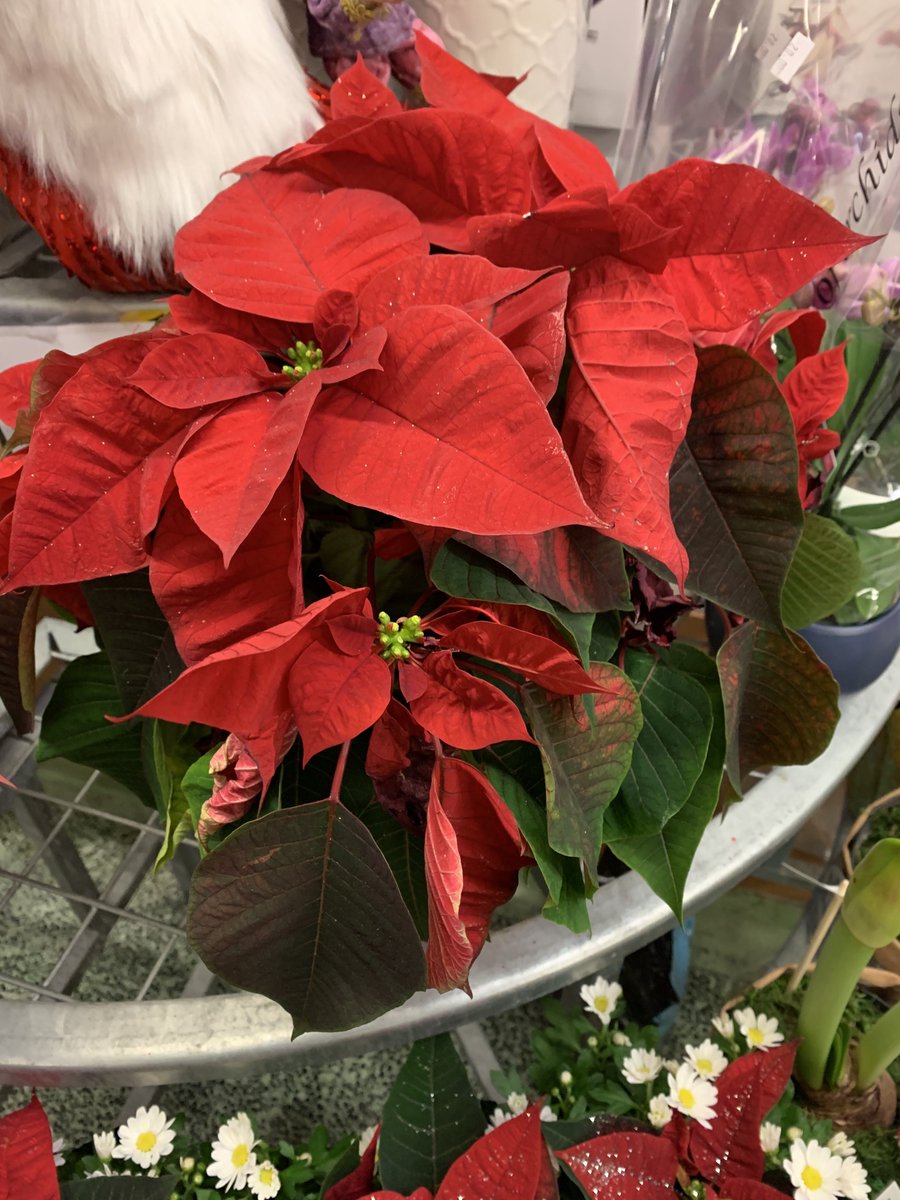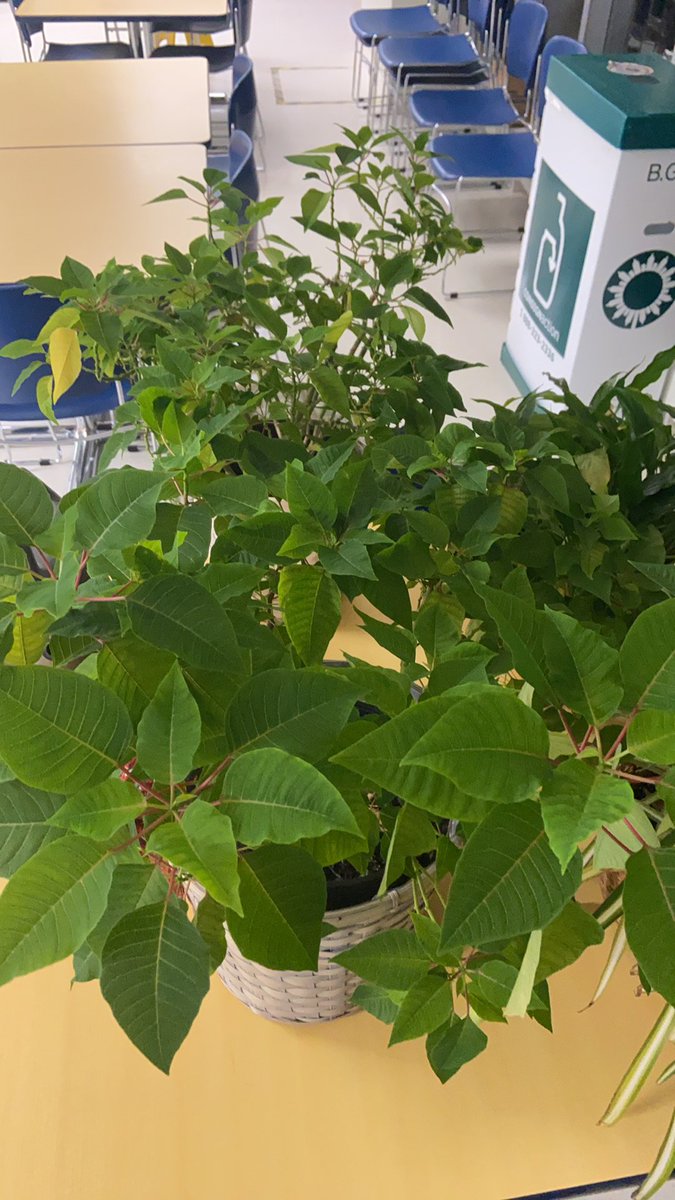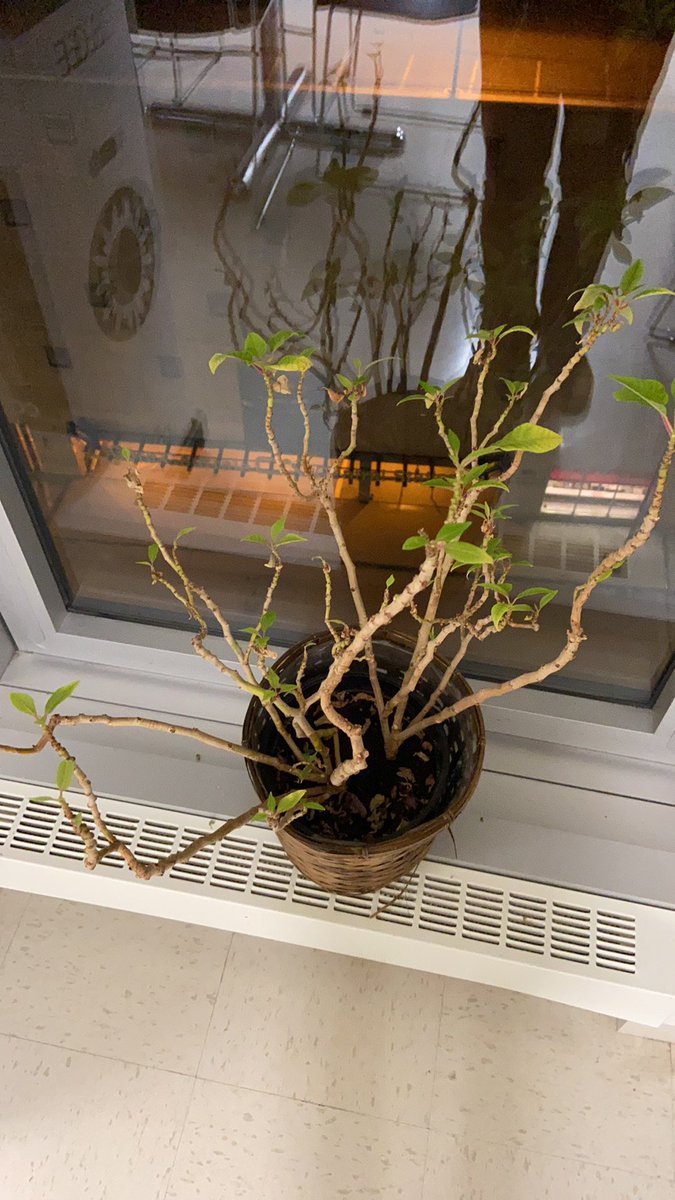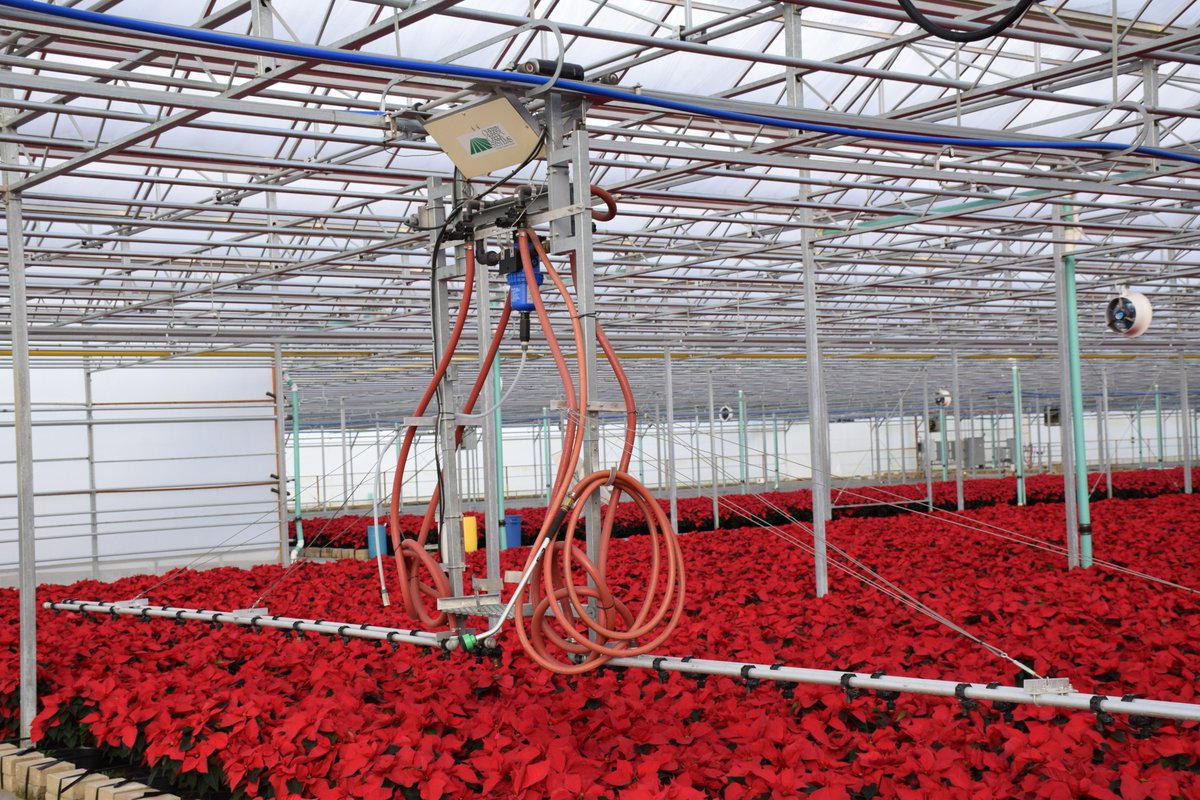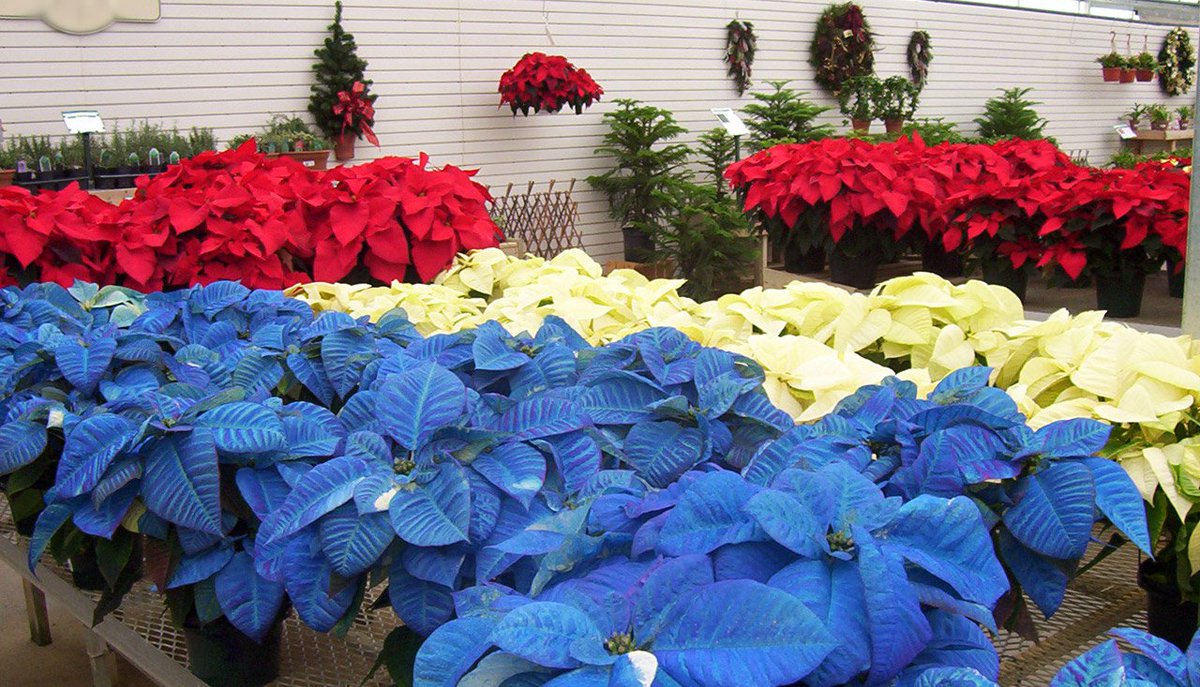Today I got curious about poinsettias.
Did you know the poinsettia:
- was cultivated by the Aztecs
- is the most economically important potted plant in the world??
- has 50% of its worldwide market controlled by a single family, the Eckes of Southern California
(continued!)
Did you know the poinsettia:
- was cultivated by the Aztecs
- is the most economically important potted plant in the world??
- has 50% of its worldwide market controlled by a single family, the Eckes of Southern California
(continued!)
If you've ever bought a nice, bright red poinsettia for Christmas, and then decided to keep it beyond the holiday season, your poinsettia probably ended up looking like this:
The reason is that the bracts (the leaves surrounding the tiny yellow flowers) turn red only when daylight hours are short.
In theory, you get this every fall and winter... Except that you (presumably) use artificial lighting in your home. Your poinsettia doesn't like that.
In theory, you get this every fall and winter... Except that you (presumably) use artificial lighting in your home. Your poinsettia doesn't like that.
If you want it to "bloom" next year, you need to put it in a room with only natural light, and no artificial light ever. Or cover it for 15 hours a day.
Or, you know. Buy a new one each year like everyone else.
Or, you know. Buy a new one each year like everyone else.
Which I suppose is why it's such a major market. This suggests a path for would-be horticulturist entrepreneurs: find a plant that becomes ugly over time and needs a lot of work to make pretty again.
Then build a huge greenhouse like this one and do the work for us.
Then build a huge greenhouse like this one and do the work for us.
Of course, other things helped the Ecke family:
- developing a super secret grafting technique to make the plant bushier. Otherwise it tends to look like the picture below.
(this gave them a monopoly on the market until ~1990, when the technique was discovered by others)
- developing a super secret grafting technique to make the plant bushier. Otherwise it tends to look like the picture below.
(this gave them a monopoly on the market until ~1990, when the technique was discovered by others)
- sending free poinsettias to TV stations to popularize the association with Christmas
(this association, by the way, has been true in Mexico since the early Spanish period)
(this association, by the way, has been true in Mexico since the early Spanish period)
- creating new poinsettia colors!
There's a world beyond the red poinsettia. Pink, cream, variegated, etc.
Though if you see a blue poinsettia, possibly with glitter... don't be fooled. It's just dyed.
(fin)
There's a world beyond the red poinsettia. Pink, cream, variegated, etc.
Though if you see a blue poinsettia, possibly with glitter... don't be fooled. It's just dyed.
(fin)

 Read on Twitter
Read on Twitter